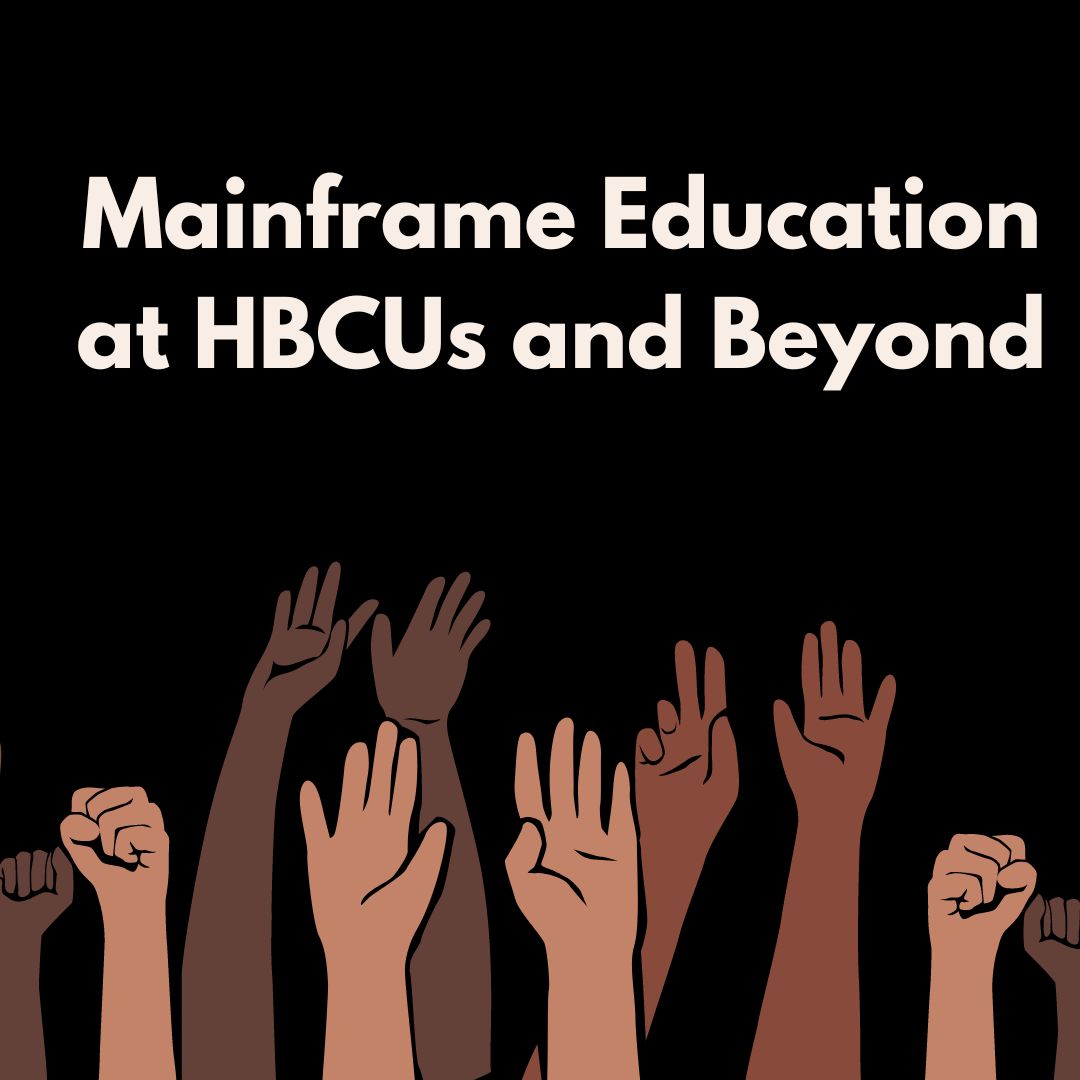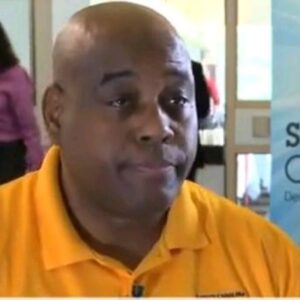
Written by Dr. Cameron Seay, Professor at East Carolina University and Open Mainframe Project Governing Board Member
 I was asked once again to write an article about HBCUs and the mainframe for Black History Month. I will certainly do that, but I am compelled to broaden the perspective a bit. Perhaps you will understand why when I tell you a little bit about why I am teaching in the first place.
I was asked once again to write an article about HBCUs and the mainframe for Black History Month. I will certainly do that, but I am compelled to broaden the perspective a bit. Perhaps you will understand why when I tell you a little bit about why I am teaching in the first place.
I was in the IT industry for over 20 years in a variety of roles from programmer to DBA to manager. I found the work enjoyable but unfulfilling. On a visit to North Carolina Central University in Durham, NC I met a young woman graduating the next day. She asked, “will this degree help me get a job?” I though this a curious question for someone about to graduate with a degree in CIS and made up my mind then and there to teach technology to black people. Twenty years later, I am still doing that and have no intention of retiring, ever.
I have taught at 4 HBCUs, North Carolina Central University, NC A&T State University, Alcorn State, and Tennessee State. All four experiences were immensely rewarding as the pattern was the same at each: few students were getting industry jobs in the department, so we started teaching mainframe and let companies know we were doing so. Then the students got jobs – initially in mainframe and then on all platforms. The formula was so simple I could not understand why every HBCU wasn’t teaching about mainframes. For whatever the reason, HBCUs at large are not teaching mainframe technology (there are two exceptions I will note). I remain committed to getting HBCUs into the mainframe ecosystem as a steady source of new talent.

I noted two exceptions where HBCUs are teaching mainframe. One is the Department of Computer Systems Technology at NC A&T in Greensboro, NC, headed by Dr. Gina Bullock and the computer science department at Albany State University in Albany Ga headed by Dr. Robert Owor.
I started the mainframe program at NC A&T and Gina is now running it. In both programs, there is a heavy emphasis on modern software development with tools like Jenkins and Jira, and their students are getting jobs. Both programs take a hybrid cloud approach to the mainframe, because mainframe is an unmovable piece of the global technology infrastructure and nearly every mainframe must connect to the commercial cloud.
But as I said above, I feel we need to broaden our educational perspective beyond the HBCUs, because many – if not most – young black people will not attend a four-year college. In the mainframe space, industry has all but given up on seeing colleges as sources of new talent and are pursuing no-degree-required solutions like boot camps, apprenticeships and providing their new hires training.
The apprenticeship model is particularly attractive for a number of reasons among them higher retention of new hires and a lower cost of onboarding. I have advised the HBCUs to incorporate the apprentice model for years, as I feel this can be done seamlessly. But that is for another conversation. The reason the I am so intrigued by the apprenticeship model is because of its ability to reach everyone, not just matriculating college students. My working group, the Mainframe Learning Consortium, conducts bootcamps that are the first phase of an apprenticeship program for a given company. It’s a 12-week course, the end of which they are professional level (though not yet experienced) programmers ready to join production teams and add value.
As mentioned, I went into teaching to teach black people technology, though I have never taught exclusively black classes. Our world is diverse, and my role as an educator is to make sure my students are properly prepared, irrespective of their ethnicity or gender. But what I saw as a working professional was a deplorable paucity of black people in lead tech roles and I did not understand why. It took my getting a PhD in education to discover a very simple answer: lack of opportunity and lack of preparation, both very fixable. In my bootcamps, I teach folks I would never encounter in my college classes. Some have degrees, some don’t. We don’t care. All you need to be a mainframer is to read and write English at the 7th grade level. There is no barrier to entry other than a general writing assessment and an interview. My bootcamp classes are more diverse than my college classes, and I am truly able to touch all levels of the black community.
I will close with an optimistic look at the future. Dr. Magie Smith of the University of Nebraska/Omaha, and contributor to the COBOL Working Group, has a National Science Foundation project, WorkLearn, with which I am working. Magie has built a MOOC to teach, in sequence, computational thinking, Python, COBOL on the mainframe. It is fully online and open to the public. The target audience is those in financial distress including the homeless. The desire of this project is to allow anyone anywhere to begin a tech career. This is all I ask, not just for African Americans, but for everyone.